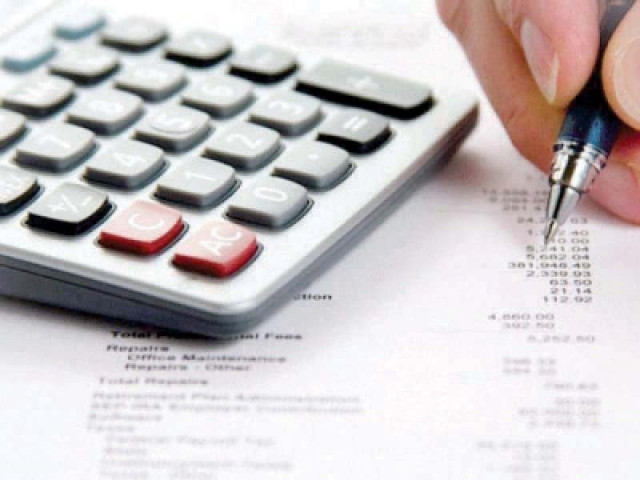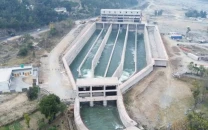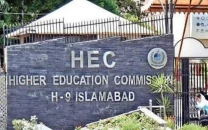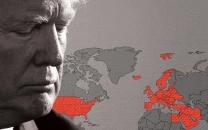Budget makes it difficult to live, expensive to leave
Money bill sails through NA laden with new taxes

The National Assembly on Friday approved the budget for the next fiscal year that slapped taxes on every imaginable source of income, asset and consumable goods to force people cough up additional Rs1.7 trillion in taxes to finance a 30% bloated federal budget.
Out of the Rs1.7 trillion additional revenue measures, about Rs200 billion new taxes were introduced on Friday –the first mini-budget just before the start of the fiscal year 2024-25.
Despite making the lives of common citizens difficult through a new wave of taxes, the government of Prime Minister Shehbaz Sharif exempted the income tax on sales of properties by serving and retired bureaucrats and serving and retired military personnel.
The prime minister also rejected a proposal to tax the stock market transactions and instead further increased the salaried and non-salaried class taxes by a 10% surcharge.
Instead of providing any relief to the salaried and the non-salaried individuals, on the advice of the government, the National Assembly increased the effective income tax rate of a salaried person to 39%, for association of persons to 44% and for the non-salaried individuals to 50%.
Just before the approval of the budget, the government took new measures making it difficult not only to live in the country but also made it expensive to leave the country by increasing taxes on travel.
The government imposed a 10% surcharge on the income tax of an annual income of Rs10 million. This would effectively increase the income tax rate for the salaried person to 39% and 50% for the non-salaried individuals.
The Association of Persons will be charged 40% income tax and after adding the impact of a bizarre surcharge, these firms will pay 44% income tax. The government made 100% increase in the federal excise duty (FED) rate for cement to Rs4 per kg, which will alone yield Rs80 billion in the next fiscal year. This will increase per bag cement price by at least Rs100.
The government also imposed 5% FED on lubricant oil to get another Rs15 billion. The government has also massively increased the FED rate on international travel tickets to generate additional Rs55 billion in the next fiscal year.
For the economy class, the tax rate has been increased by 150% to Rs12,500. For the business class, the tax rate has been increased by 40% and the new tax per ticket is Rs350,000 for Americas, Rs105,000 for Middle East and Europe and Rs210,000 for Australia, New Zealand and the Pacific.
The government also slapped 3% FED on allotment or transfer of property by filers and 5% by non-filers. The government slapped Rs500,000 tax on 2,000 square yards to 4,000 square yards farms houses and Rs1 million on over 4,000 square yards farm houses in the vicinity of Islamabad Capital Territory.
Similarly, the 1,000 square yards to 2,000 yards residential homes, Rs1 million tax has been imposed while over 2,000 yards homes will attract Rs1.5 million tax. The new tax, introduced on Friday, will yield Rs4 billion to the FBR. A 4% stamp duty has also been approved on the value of the property being traded in Islamabad Capital Territory.
Tax exemptions
The National Assembly approved that no withholding tax will be charged on the sale or transfer of immovable property by “a war-wounded person while in service of Pakistan Armed Forces or Federal or Provincial Government or an ex-serviceman and serving personnel of armed forces or ex-employees or serving personnel of Federal and Provincial Government”.
The National Assembly also approved charging of 15% capital gains tax instead of 20% in case of a stock fund if dividend receipts of the fund were less than capital gains. The government withdrew the proposal to slap 75% tax on the telephone calls by the non-filers.
The erstwhile FATA would continue to enjoy the tax-free status but instead of post-dated cheques, the industrialists would have to submit the pay orders to stop the misuse of the facility. The National Assembly approved Rs52 billion tax exemption for these areas.
The electricity supply to Azad Jammu and Kashmir has been exempted from 18% sales tax. Similarly the import of gold, import of gold under entrustment scheme and import of cystagon, cysta drops and trientine capsules and bovine semen are exempted from 18% GST.
Tightening noose
The government has also brought in non-resident citizens having “significant economic presence in Pakistan” in the ambit of the tax law. It has defined the significant economic presence in Pakistan as the persons doing transactions in respect of any goods, services or property carried out by a non-resident with any person in Pakistan, including provision of download of data or software in Pakistan, if the aggregate of payments arising from such transaction or transactions during the tax year exceeds such amount as may be prescribed.
The systematic and continuous soliciting of business activities or engaging in interaction through digital means with such number of users in Pakistan as may be prescribed, irrespective of whether or not the agreement for such transactions or activities is signed in Pakistan; the non-resident has a residence or place of business in Pakistan; or the non-resident renders services in Pakistan are also brought under Pakistani law.
The government has also further tightened the income tax evasion routes by bringing an amendment to Section 111 that is related to unexplained income. It has included a new section which stated that “year of discovery of foreign assets or expenditure or concealed income, shall mean the year in which the commissioner has issued a notice requiring the person to explain the nature and source of such foreign assets, expenditure or concealed income”.
The government has also slapped 10% to 15% income tax on the gross receipts of sales by builders and developers on account of construction, development and sale of residential, commercial and other buildings. This will yield Rs20 billion more to the FBR in the next fiscal year.
The government has rationalised penalties on the telecommunication companies for their failure to block SIMs of the non-filers. The National Assembly has approved to slap Rs50 million penalty on the first default and Rs100 million for each subsequent default – a sum that is half of the original proposal.
The National Assembly approved 18% GST on packaged milk and infant milk. The mobile phones will also be charged at the rate of 18% and 25% sales tax. However, the newspapers and books will stay exempted. The National Assembly approved sales tax exemption for charitable hospitals.
The National Assembly approved Rs1,000 stamp duty on any instrument related to a future flow transaction for fund raised by any bank or financial institution. The duty will be charged on any instrument involving a conveyance, whether in foreign currency or local currency.
The National Assembly approved Rs70 per litre petroleum levy on high speed diesel, high octane blending component and petrol, which is Rs10 per litre higher than the existing rates but Rs10 lower than the one proposed in the budget. The government has cut the PSDP by Rs250 billion to keep the petroleum levy rate at Rs70 per litre instead of Rs80.
Despite the Senate’s recommendation, the government has allowed the Abandoned Properties Organisation to retain Rs14 billion of the public funds. The National Assembly approved 18% sales tax on vegetables and fruits imported from Afghanistan, pencils, drawing materials, diagnostic kits, and tractors.
But the government withdrew the proposal to slap sales tax on newspapers, exercise books, cardiac surgery instruments and importantly for erstwhile FATA areas. The sales tax exemption on supplies of electricity and gas to the charitable institutions would also continue.
However, it has imposed 18% GST on the milk sold by the corporate dairy farms. It has also brought the sales of iron and steel scrap supplied by manufacturer-cum-exporter of recycled copper.
Some major changes have also been brought in the 8th schedule. The government has retained 10% sales tax on LPG cylinders and 15% on the sales made by branded shops that are integrated with the FBR. The government has allowed a reduced 8.5% GST on hybrid vehicles till June 2026 in line with the commitments given under the automobile policy to the Japanese investors.



















COMMENTS
Comments are moderated and generally will be posted if they are on-topic and not abusive.
For more information, please see our Comments FAQ